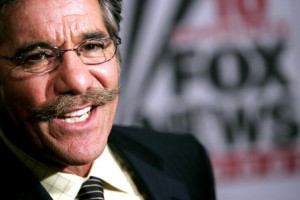
Peter Kramer / Getty Images
Geraldo Rivera is a FOX News correspondent.
Trayvon Martin, the 17-year-old black Florida teenager killed by Neighborhood Watch volunteer George Zimmerman, was wearing a hoodie at the time of the shooting. Zimmerman, who hasn’t been charged with a crime, told a 911 dispatcher that Martin “looks like he’s up to no good, or on drugs or something,”
As the case has captured national attention, many have focused on the hoodie. It’s being used as a symbol to stand in solidarity with the Martin family, and now, it’s being partially blamed for the incident. Controversial television personality Geraldo Rivera said on the March 23 edition of “Fox and Friends” that:
I believe that George Zimmerman, the overzealous neighborhood watch captain should be investigated to the fullest extent of the law and if he is criminally liable, he should be prosecuted. But I am urging the parents of black and Latino youngsters particularly to not let their children go out wearing hoodies. I think the hoodie is as much responsible for Trayvon Martin’s death as George Zimmerman was.
Rivera went on to say that he tells his “dark-skinned” son Cruz to not leave the house wearing a hoodie because “people look at you and they — what do they think? What’s the instant identification, what’s the instant association?”
Many then took to Twitter to criticize Rivera, who then tweeted this:
Rivera’s advice shifts responsibility from aggressors to victims, much like saying rape victims were “asking for it” because of what they were wearing. But Rivera’s statements also somewhat allude to the painful decisions that many parents have to confront, of how to protect their black and brown children in a world where racism exists and can costs lives.




